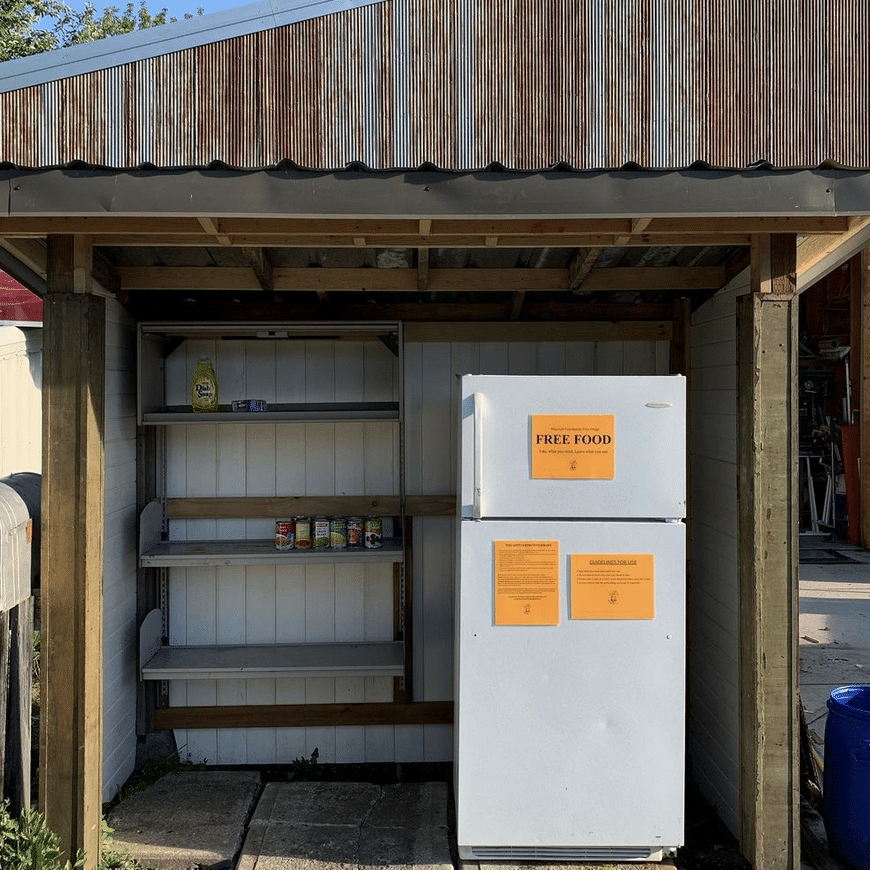Creating a network of hyper-local food access sites

Imagine a city where every person who experiences food insecurity is within walking distance of a site stocked with prepared meals and food ingredients.
That’s Missoula Community Free Fridge’s vision.
“There’s something very beautiful about thinking about my community farms growing this food, and this food being available in a fridge that’s 2 miles away that I can go pick up and use to feed my family,” said project organizer Aubrey Pongluelert. “That is one pressure that is lifted off of me as a community member because my community is providing this and supporting me.”
The free fridges are intended to make food extremely accessible. They’re distributed around the city to reduce the need for transportation to get food. The fridges are open around the clock. Community members don’t need to fill out an application or prove their need in order to access the food—they just help themselves.
“The dream is that there’s a little web of fridges around town, and the community supports them and maintains them,” Aubrey said.
The existing sites are located on private property. Local restaurants, farms, and community members stock the fridges with food. Aubrey hopes to install some at local businesses and public sites in the city in the future. She organizes the project with two others.
“There’s something very beautiful about thinking about my community farms growing food and that food being available in a fridge.”



Free food fridges exist all over the country. The Community Free Fridge project adapted models that exist in other areas to fit Missoula’s unique needs.
The idea for the free fridges started when Aubrey began organizing with Montana BIPOC Mutual Aid Fund. The fund collects donations from community members and distributes them to Black, Indigenous, and people of color who request financial assistance.
The fund gets more requests than it can fill, so the group prioritizes requests for assistance with rent and medical bills. Aubrey realized that left some people without the resources they needed to buy food. That’s how she decided to start the free fridge project.

The free fridges are a sister project of MT BIPOC Mutual Aid. Aubrey says the partnership allows the fridges to reach an audience that is often left out of conversations about local food systems.
“I want this to be a way Missoula actively engages with food sovereignty—not just food security, but food justice,” Aubrey said.
The mutual aid model is an alternative to traditional models of charity. The idea is communities work together to fill their neighbor’s needs. Mutual aid functions on the premise of “solidarity rather than charity.” It gives everyone an opportunity to share their resources with those who need them. That’s a departure from other models where one group with resources donates to another group they see as “in need.”
It’s a new approach to building a food secure world. When Aubrey tells people about the project, they sometimes ask her who locks up the fridges when they’re not open.
“There are no locks,” she said. “Welcome to the world we’re imagining.”
